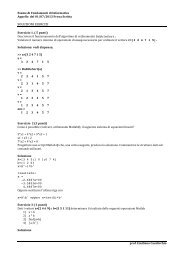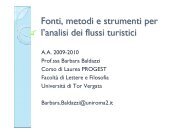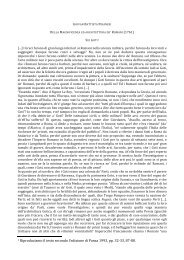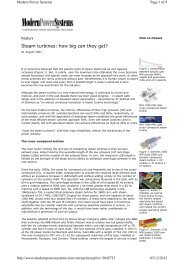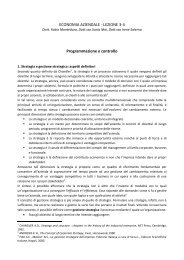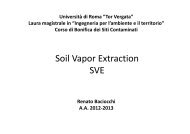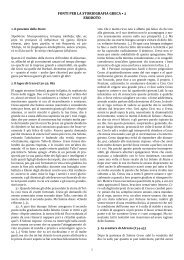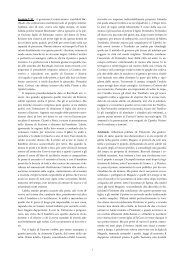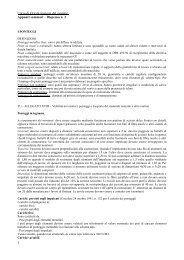Create successful ePaper yourself
Turn your PDF publications into a flip-book with our unique Google optimized e-Paper software.
<strong>The</strong> <strong>House</strong> <strong>of</strong> <strong>the</strong> <strong>Seven</strong> <strong>Gables</strong><br />
sents a Pyncheon <strong>of</strong> a former generation as having persecuted<br />
one Maule, who declared that God would give his<br />
enemy “blood to drink.” It became a conviction with <strong>The</strong><br />
Hawthorne family that a curse had been pronounced upon<br />
its members, which continued in force in <strong>the</strong> time <strong>of</strong> <strong>The</strong><br />
romancer; a conviction perhaps derived from <strong>the</strong> recorded<br />
prophecy <strong>of</strong> <strong>The</strong> injured woman’s husband, just mentioned;<br />
and, here again, we have a correspondence with Maule’s<br />
malediction in <strong>The</strong> story. Fur<strong>the</strong>rmore, <strong>the</strong>re occurs in <strong>The</strong><br />
“American Note-Books” (August 27, 1837), a reminiscence<br />
<strong>of</strong> <strong>The</strong> author’s family, to <strong>the</strong> following effect. Philip English,<br />
a character well-known in early Salem annals, was<br />
among those who suffered from John Hathorne’s magisterial<br />
harshness, and he maintained in consequence a lasting<br />
feud with <strong>the</strong> old Puritan <strong>of</strong>ficial. But at his death English<br />
left daughters, one <strong>of</strong> whom is said to have married <strong>the</strong> son<br />
<strong>of</strong> Justice John Hathorne, whom English had declared he<br />
would never forgive. It is scarcely necessary to point out how<br />
clearly this foreshadows <strong>the</strong> final union <strong>of</strong> those hereditary<br />
foes, <strong>the</strong> Pyncheons and Maules, through <strong>the</strong> marriage <strong>of</strong><br />
Phoebe and Holgrave. <strong>The</strong> romance, however, describes <strong>the</strong><br />
Maules as possessing some <strong>of</strong> <strong>the</strong> traits known to have been<br />
characteristic <strong>of</strong> <strong>the</strong> Hawthornes: for example, “so long as any<br />
<strong>of</strong> <strong>the</strong> race were to be found, <strong>the</strong>y had been marked out from<br />
o<strong>the</strong>r men—not strikingly, nor as with a sharp line, but with<br />
an effect that was felt ra<strong>the</strong>r than spoken <strong>of</strong>—by an hereditary<br />
characteristic <strong>of</strong> reserve.” Thus, while <strong>the</strong> general suggestion<br />
<strong>of</strong> <strong>the</strong> Hawthorne line and its fortunes was followed in <strong>the</strong><br />
romance, <strong>the</strong> Pyncheons taking <strong>the</strong> place <strong>of</strong> <strong>The</strong> author’s family,<br />
certain distinguishing marks <strong>of</strong> <strong>the</strong> Hawthornes were assigned<br />
to <strong>the</strong> imaginary Maule posterity.<br />
<strong>The</strong>re are one or two o<strong>the</strong>r points which indicate<br />
Hawthorne’s method <strong>of</strong> basing his compositions, <strong>the</strong> result<br />
in <strong>the</strong> main <strong>of</strong> pure invention, on <strong>the</strong> solid ground <strong>of</strong> particular<br />
facts. Allusion is made, in <strong>the</strong> first chapter <strong>of</strong> <strong>the</strong> “<strong>Seven</strong><br />
<strong>Gables</strong>,” to a grant <strong>of</strong> lands in Waldo County, Maine, owned<br />
by <strong>the</strong> Pyncheon family. In <strong>the</strong> “American Note-Books” <strong>the</strong>re<br />
is an entry, dated August 12, 1837, which speaks <strong>of</strong> <strong>the</strong> Revolutionary<br />
general, Knox, and his land-grant in Waldo County,<br />
by virtue <strong>of</strong> which <strong>the</strong> owner had hoped to establish an estate<br />
on <strong>the</strong> English plan, with a tenantry to make it pr<strong>of</strong>itable<br />
for him. An incident <strong>of</strong> much greater importance in <strong>the</strong><br />
4


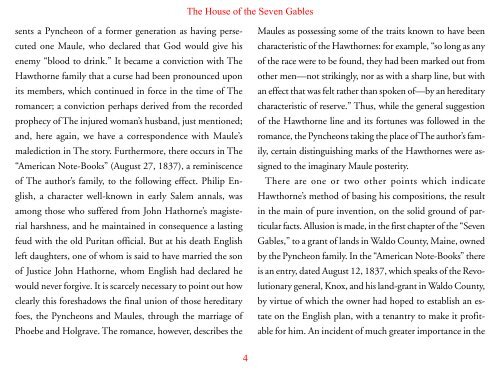
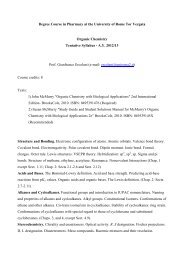
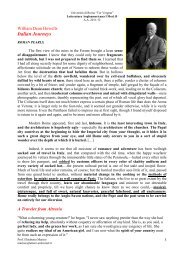
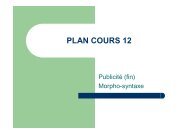
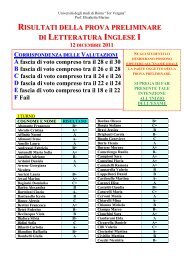
![Guinizzelli praised and explained (da [O] caro padre meo al XXVI ...](https://img.yumpu.com/50855933/1/185x260/guinizzelli-praised-and-explained-da-o-caro-padre-meo-al-xxvi-.jpg?quality=85)
